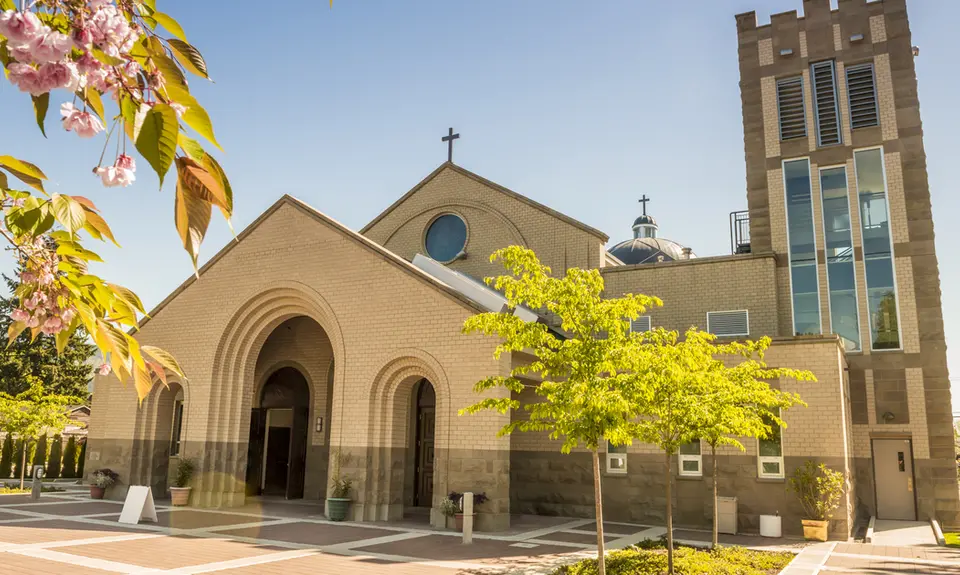“Confirmed Judges, Confirmed Fears” is a blog series documenting the harmful impact of President Trump’s judges on Americans’ rights and liberties. Cases in the series can be found by issue and by judge at this link.
Trump Supreme Court justice Brett Kavanaugh wrote a dissent in May 2020, joined by fellow Trump justice Neil Gorsuch and Clarence Thomas, trying to mandate a special preference for a California church that wanted to escape public health protections ordered during the COVID-19 pandemic, in accord with an earlier dissent by Trump Ninth Circuit judge Daniel Collins. Even conservative Chief Justice John Roberts rejected the claims, noting that Kavanaugh’s assertion that it was “indisputably clear” that the California safeguards violated the First Amendment was “quite improbable.” Both the Ninth Circuit decision and the Supreme Court ruling were in South Bay United Pentecostal Church v. Newsom.
Like many other states, California has promulgated public health safeguards restricting public gatherings during the COVID-19 pandemic. The specific content has changed over time, but churches and other religious congregations are generally treated like movie theaters, concerts and other places where many people gather together and stay in one place for an appreciable period. The South Bay United Pentecostal Church (SBUPC) objected and claimed that it should be treated more like grocery stores and other places of business and should be allowed to conduct in-person worship services including hundreds of people.
A federal district court rejected SBUPC’s claim, and the Ninth Circuit affirmed by a 2-1 vote. The majority explained that the state’s rules did not selectively “impose burdens only on conduct motivated by religious belief,” and the restrictions were justified as part of the state’s effort to deal with “a highly contagious and often fatal disease for which there presently is no known cure.” But Trump judge Collins wrote an extensive 15-page dissent, arguing that the church should be treated like grocery stores and other businesses and complaining that “religious services” have “not made the cut.”
After the Ninth Circuit decision, based on improving conditions, California loosened the restrictions on gatherings like church services. In-person religious services can now take place, with attendance limited to 25 percent capacity or 100 people, whichever is less. But SBUPC was not satisfied, and brought the case to the Supreme Court, seeking to enjoin enforcement of California’s restrictions.
In an unsigned order late on May 29, the Supreme Court rejected SBUPC’s request 5-4. Justice Kavanaugh wrote a harsh dissent, joined by Justices Thomas and Gorsuch. Kavanaugh’s basic claim was that the state had not applied the 25% restriction to secular businesses that he considered “comparable,” such as “supermarkets,” “retail stores,” “bookstores,” and “cannabis dispensaries.” He did not even consider the argument advanced by the state that truly comparable businesses like theaters were subject to the same restrictions, and concluded that the 25 percent cap “indisputably discriminates against religion.”
Chief Justice Roberts wrote a concurring opinion carefully explaining why Kavanaugh was wrong. As he wrote:
Although California’s guidelines place restrictions on places of worship, those restrictions appear consistent with the Free Exercise Clause of the First Amendment. Similar or more severe restrictions apply to comparable secular gatherings, including lectures, concerts, movie showings, spectator sports, and theatrical performances, where large groups of people gather in close proximity for extended periods of time. And the Order exempts or treats more leniently only dissimilar activities, such as operating grocery stores, banks, and laundromats, in which people neither congregate in large groups nor remain in close proximity for extended periods.
As commentators have noted, Roberts’s opinion was critical of Kavanaugh and tried to suggest limits on challenges like SBUPC’s. In addition to his “quite improbable” comment noted above, Roberts pointedly stated that where the “broad limits” on government action to protect public health during a pandemic like this one are “not exceeded,” government “should not be subject to second-guessing by an unelected federal judiciary,” as Kavanaugh was trying to do.
The COVID-19 pandemic has underlined the extreme views of Trump judges. When they are considering state restrictions on abortion rights that cannot be justified on public health grounds, Trump judges have been all too willing to try to uphold state restrictions. But when state limits are opposed by religious right advocates, even when clearly justified by public health needs, Justices Kavanaugh and Gorsuch and Judge Collins voted against the government. Fortunately, at least in this case, Chief Justice Roberts rejected that view.
